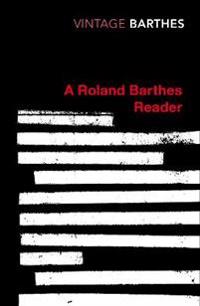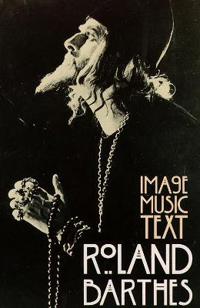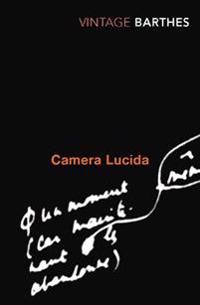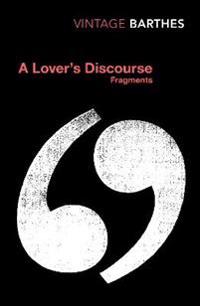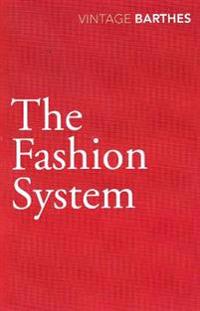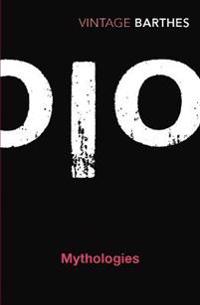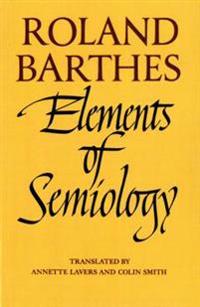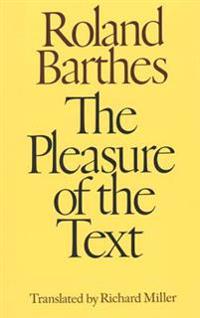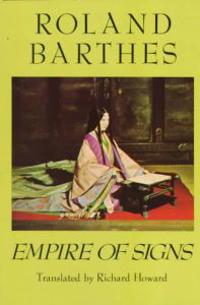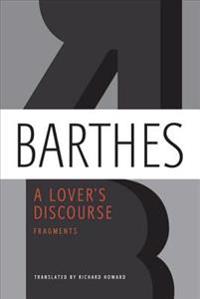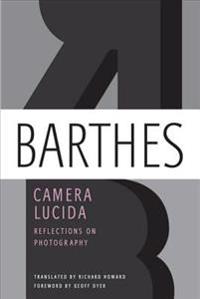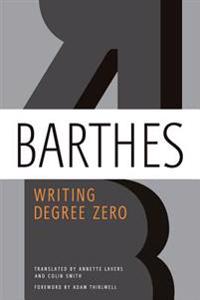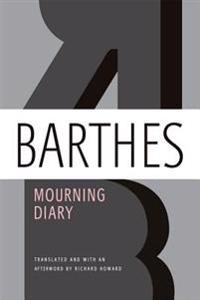A Roland Barthes Reader (Storpocket)
avRoland Barthes
ISBN: 9780099224914 - UTGIVEN: 1993-07'At last, with A Barthes Reader, we have a sort of Michelin guide to one of the most beguiling minds of our era. Smartly introduced by Susan Sontag, the Reader samples Barthes' achievement over three decades' - Newsweek A selection of works by the French intellectual Roland Barthes, including semina[...]
Roland Barthes (Häftad)
avRoland Barthes, Adam Phillips
ISBN: 9780374251468 - UTGIVEN: 201010First published in 1977, "Roland Barthes by Roland Barthes "is the great literary theorist's most original work--a brilliant and playful text, gracefully combining the personal and the theoretical to reveal Roland Barthes's tastes, his childhood, his education, his passions and regrets.[...]
Image-Music-Text (Häftad)
avRoland Barthes
ISBN: 9780006861355 - UTGIVEN: 199309Fontana Press. Roland Barthers reissue with new jacket.
Camera Lucida (Storpocket)
avRoland Barthes
ISBN: 9780099225416 - UTGIVEN: 199307Examining the themes of presence and absence, the relationship between photography and theatre, history and death, these 'reflections on photography' begin as an investigation into the nature of photographs. Then, as Barthes contemplates a photograph of his mother as a child, the book becomes an exp[...]
Lover's Discourse (Häftad)
avRoland Barthes
ISBN: 9780099437420 - UTGIVEN: 200207Here, Barthes addresses the language of love, a language of solitude, of mythology, of what he calls an "image repertoire". It is aimed at two groups of readers: those who have been in love, and those who have not. A wide range of examples are included, from Nietzsche to Zen.[...]
The Fashion System (Storpocket)
avRoland Barthes
ISBN: 9780099528333 - UTGIVEN: 2010-11Fashion never ceases to interest psychologists, aestheticians and sociologists. Roland Barthes, however, examined fashion from a new point of view. Using descriptions from magazines, he uncovered a system of meaning and subjected it for the first time to semantic analysis. "The Fashion System", publ[...]
Mythologies (Häftad)
avRoland Barthes
ISBN: 9780099529750 - UTGIVEN: 200909A collection of essays that explores the myths of mass culture. It deciphers the symbols and signs embedded deep in familiar aspects of modern life, unmasking the hidden ideologies and meanings which implicitly affect our thought and behaviour.[...]
Roland Barthes' Cinema
ISBN: 9780190277550 - UTGIVEN: 2016-03The most famous name in French literary circles from the late 1950s till his death in 1981, Roland Barthes maintained a contradictory rapport with the cinema. As a cultural critic, he warned of its surreptitious ability to lead the enthralled spectator toward an acceptance of a pre-given world. As a[...]
Neutral, The: Lecture Course at the College De France (1977-1978) (Inbunden)
avRoland Barthes
ISBN: 9780231134040 - UTGIVEN: 2005-06-06The Neutral (Häftad)
avRoland Barthes
ISBN: 9780231134057 - UTGIVEN: 200707"I define the Neutral as that which outplays the paradigm, or rather I call Neutral everything that baffles paradigm." With these words, Roland Barthes describes a concept that profoundly shaped his work and was the subject of a landmark series of lectures delivered in 1978 at the College de France,[...]
The Preparation of the Novel (Inbunden)
avRoland Barthes
ISBN: 9780231136143 - UTGIVEN: 2010-11Completed just weeks before his death, the lectures in this volume mark a critical juncture in the career of Roland Barthes, in which he declared the intention, deeply felt, to write a novel. Unfolding over the course of two years, Barthes engaged in a unique pedagogical experiment: he combined teac[...]
How to Live Together (Pocket)
avRoland Barthes
ISBN: 9780231136174 - UTGIVEN: 2012-12-09Focusing on five texts representing different living spaces and their associated ways of life--including Robinson Crusoe and The Magic Mountain--a series of lectures explores solitude and the degree of contact necessary for individuals to exist and create at their own pace. Simultaneous. Hardcover a[...]
Image-Music-Text (Häftad)
avRoland Barthes
ISBN: 9780374521363 - UTGIVEN: 197807These essays, as selected and translated by Stephen Heath, are among the finest writings Barthes ever published on film and photography, and on the phenomena of sound and image. The classic pieces "Introduction to the Structural Analysis of Narrative" and "The Death of the Author" are also included.[...]
The Pleasure of the Text (Häftad)
avRoland Barthes
ISBN: 9780374521608 - UTGIVEN: 197501What is it that we do when we enjoy a text? What is the pleasure of reading? The French critic and theorist Roland Barthes's answers to these questions constitute "perhaps for the first time in the history of criticism . . . not only a poetics of reading . . . but a much more difficult achievement, [...]
S/Z (Pocket)
avRoland Barthes
ISBN: 9780374521677 - UTGIVEN: 1975-01-01Preface by Richard Howard. Translated by Richard Miller. This is Barthes's scrupulous literary analysis of Balzac's short story "Sarrasine."
[...]Empire of Signs (Häftad)
avRoland Barthes
ISBN: 9780374522070 - UTGIVEN: 198309With this book, Barthes offers a broad-ranging meditation on the culture, society, art, literature, language, and iconography--in short, both the sign-oriented realities and fantasies--of Japan itself.
[...]A Lover's Discourse: Fragments (Häftad)
avRoland Barthes, Wayne Koestenbaum
ISBN: 9780374532314 - UTGIVEN: 201010Camera Lucida: Reflections on Photography (Häftad)
avRoland Barthes, Geoff Dyer
ISBN: 9780374532338 - UTGIVEN: 201010A graceful, contemplative volume, "Camera Lucida "was first published in 1979. Commenting on artists such as Avedon, Clifford, Mapplethorpe, and Nadar, Roland Barthes presents photography as being outside the codes of language or culture, acting on the body as much as on the mind, and rendering deat[...]
Writing Degree Zero (Häftad)
avRoland Barthes
ISBN: 9780374532352 - UTGIVEN: 201203Is there any such thing as revolutionary literature? Can literature, in fact, be political at all? These are the questions Roland Barthes addresses in "Writing Degree Zero," his first published book and a landmark in his oeuvre. The debate had engaged the European literary community since the 1930s;[...]
Mourning Diary: October 26, 1977 - September 15, 1979 (Häftad)
avRoland Barthes
ISBN: 9780374533113 - UTGIVEN: 201203"In the sentence 'She's no longer suffering, ' to what, to whom does 'she' refer? What does that present tense mean?" --Roland Barthes, from his diary
The day after his mother's death in October 1977, Roland Barthes began a diary of mourning. For nearly two years, the legendary French theorist w[...]Roland Barthes (Häftad)
avGraham Allen
ISBN: 9780415263627 - UTGIVEN: 200307Roland Barthes is a central figure in the study of language, literature, culture and the media, both as innovator and guide. This book prepares readers for their first encounter with his crucial writings on some of the most important theoretical debates of the 20th century, including: existentialism[...]

